If the nine-to-five life is getting to you, you're in luck. It's 2024, and we're living in the age of the entrepreneur and in the midst of the creator economy. This means that people like you, who are creative and would rather be their own boss, can succeed without even having to step out of the house.
The truth is that now is the best time to switch to that entrepreneurial lifestyle. We're past the tumultuous early days of working from home, and some tried-and-true trends have emerged—and the demand for them stays high.
Making money from the comfort of your own home has never been easier or more lucrative. Sure, we're not going to pull wool over your eyes and tell you that every home business is like a goldmine, but a lot of them are easy to start, quick to turn a profit, and simple to get paid for. (No, really—all you need is to sign up with Whop to start making money for your digital business.)
If you're yearning for a change, explore our comprehensive list of 55 work-at-home business ideas. We'll even tell you how to start your business and help you figure out if this lifestyle is for you!
In this guide, we have split 55 ideas into four sections. Click to jump ahead to:
- Budget friendly work at home business ideas
- Online Work at Home Business Ideas
- Best Creative Work at Home Business Ideas
- Offline Work at Home Business Ideas
Best Budget Friendly Work at Home Business Ideas
For a lot of WFH businesses, the startup costs are minimal to none. In fact, for some of them, you might already have everything you need.
1. Launch an accounting or bookkeeping business
Are you good with numbers? More importantly, are you good with helping other people with their numbers? If yes, then you might do well with an accounting or bookkeeping business. You can work directly with individuals or offer your services to other companies.
For accounting, you'll most likely need a CPA license; bookkeepers can get away with no licensing, but a CPB certificate is a great addition. Bookkeeping is needed all year round; accounting sees a few seasonal spikes throughout the year, such as the tax-filing period and at the end of the year.
2. Start doing voiceovers
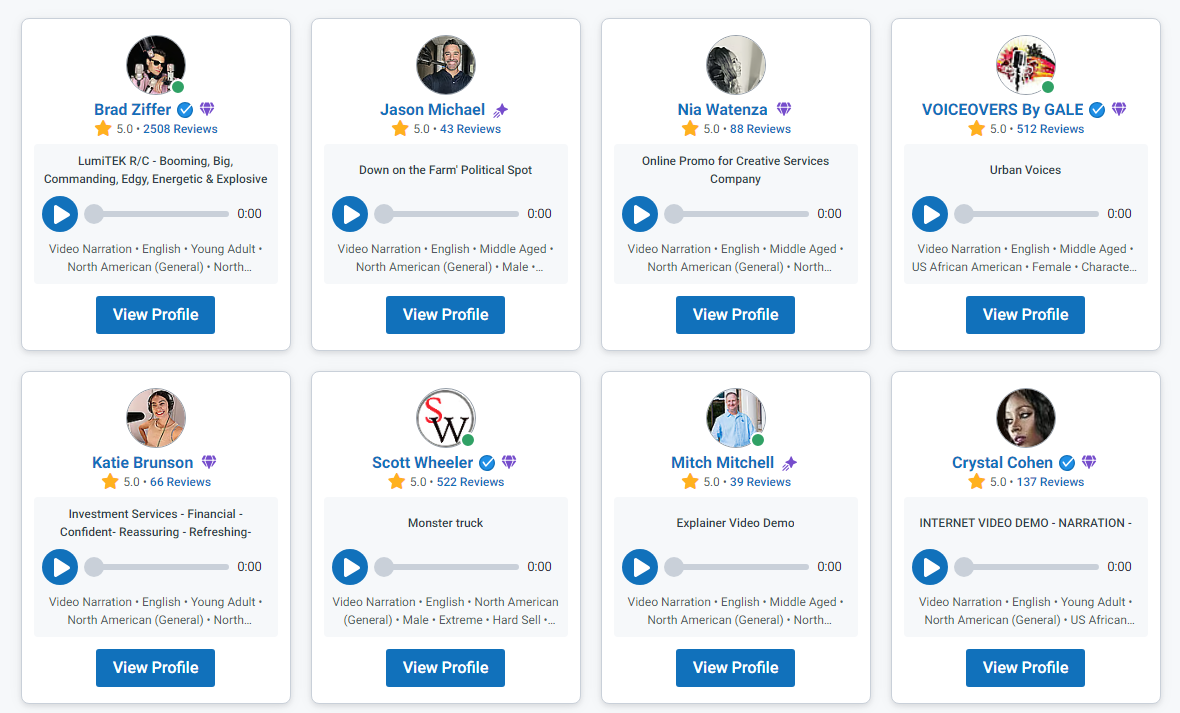
If your voice has that special something that makes it pleasant to listen to, you could start a voiceover business from the comfort of your own home. Voiceover makes it sound like you'd be working in dubbing, but most gigs won't have anything to do with pretending to be a cartoon character. Most jobs include recording voice tracks for various types of media, such as commercials, corporate narrations, audiobooks, YouTube videos, or video games.
Some clients might be okay with you recording on your phone, but many will require a professional microphone, a good pair of headphones, and some audio editing software.
3. Start an editing business
There's never been a better time to open up an editing business than right now. For many creators, AI has been the equivalent of the asteroid that killed off all the dinosaurs, but those with editing skills are the ones who adapted and eventually thrived.
Editing jobs cover a wide range of skills. You could edit articles or ad copy; you could edit videos; you could edit images and photos. For most of these jobs, all you'll need is a computer, the right skills, and the right software.
4. Become a prompt engineer
Speaking of AI—the rise in artificial intelligence spawned some entirely new jobs, and you can start a successful freelancing business if you market yourself as a "prompt engineer." In a nutshell, prompt engineers work with AI language models of their choice and optimize the prompts to get the best results. They're also responsible for editing what comes out to make sure everything is of good quality.
Jumping on the AI train early is a good call, and this business is basically free to start if you have an internet connection. Be warned, though, that the competition is pretty fierce, so it's a good idea to niche down and supplement the AI with your own expert knowledge.
5. Offer betting education
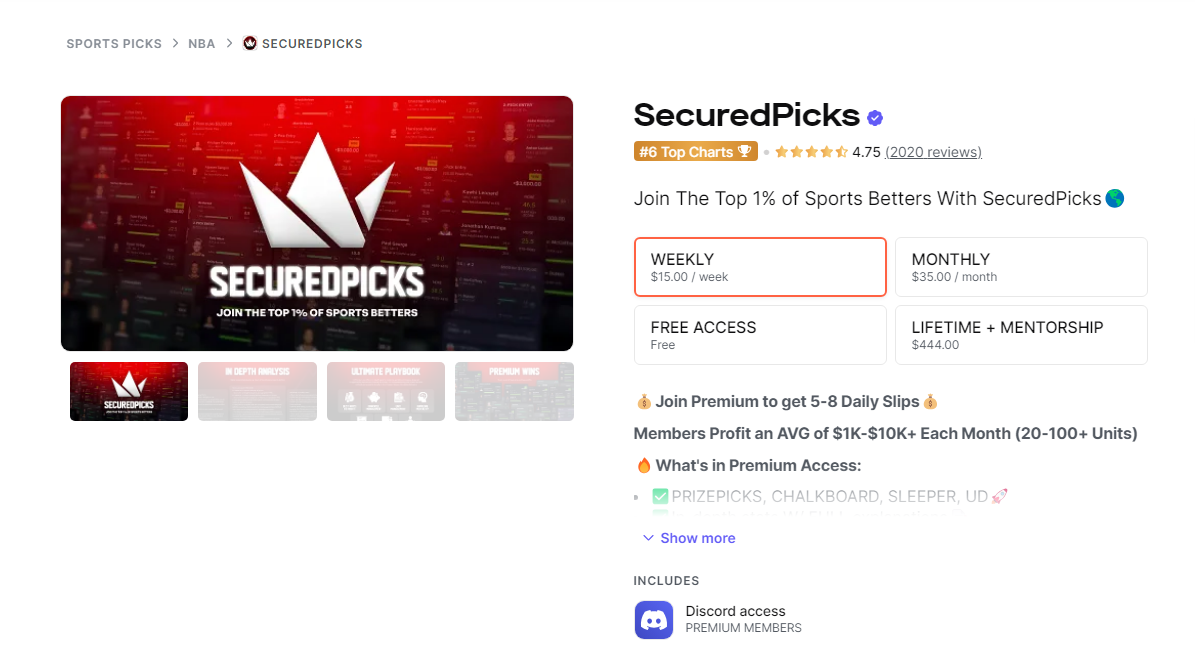
Betting on sports may be risky to the general public, but to experts, it's all algorithms, bots, and foreseeable outcomes. That's why, if you're good at betting, you can do more than just make some extra cash on the side—you can offer betting education for money.
This is a business that can generate revenue through diverse channels. You can run a Discord community, offer one-on-one coaching, start a subscription-based newsletter, and more.
6. Make Figma templates

We'll let you in on a little secret—you can make a lot of money doing things for people that they don't have time to do themselves, or can't do as well as you can. Selling Figma templates is one such way to start a profitable side business at home.
Figma templates serve a wide range of needs, from retail shopping app interfaces to presentation layouts and NFT marketplace designs. Once you create them and put them up for sale on an online marketplace like Whop, they'll generate passive income, making them one of the best digital products to sell in 2024.
7. Become a freelance writer
If you have a knack for the written word, you can become a freelance writer. Despite the emergence of large language models, writing is still a viable career that can bring in a lot of money every year—but it's not as easy to start as it used to be.
A good way to get your foot in the door is to niche down. For instance, if you want to write about gaming or anime, there'll be thousands of others who want the same; if you choose to write about medical equipment and you know your stuff, you'll have fewer clients to pitch to, but higher success rates (and higher income).
8. Make Notion templates
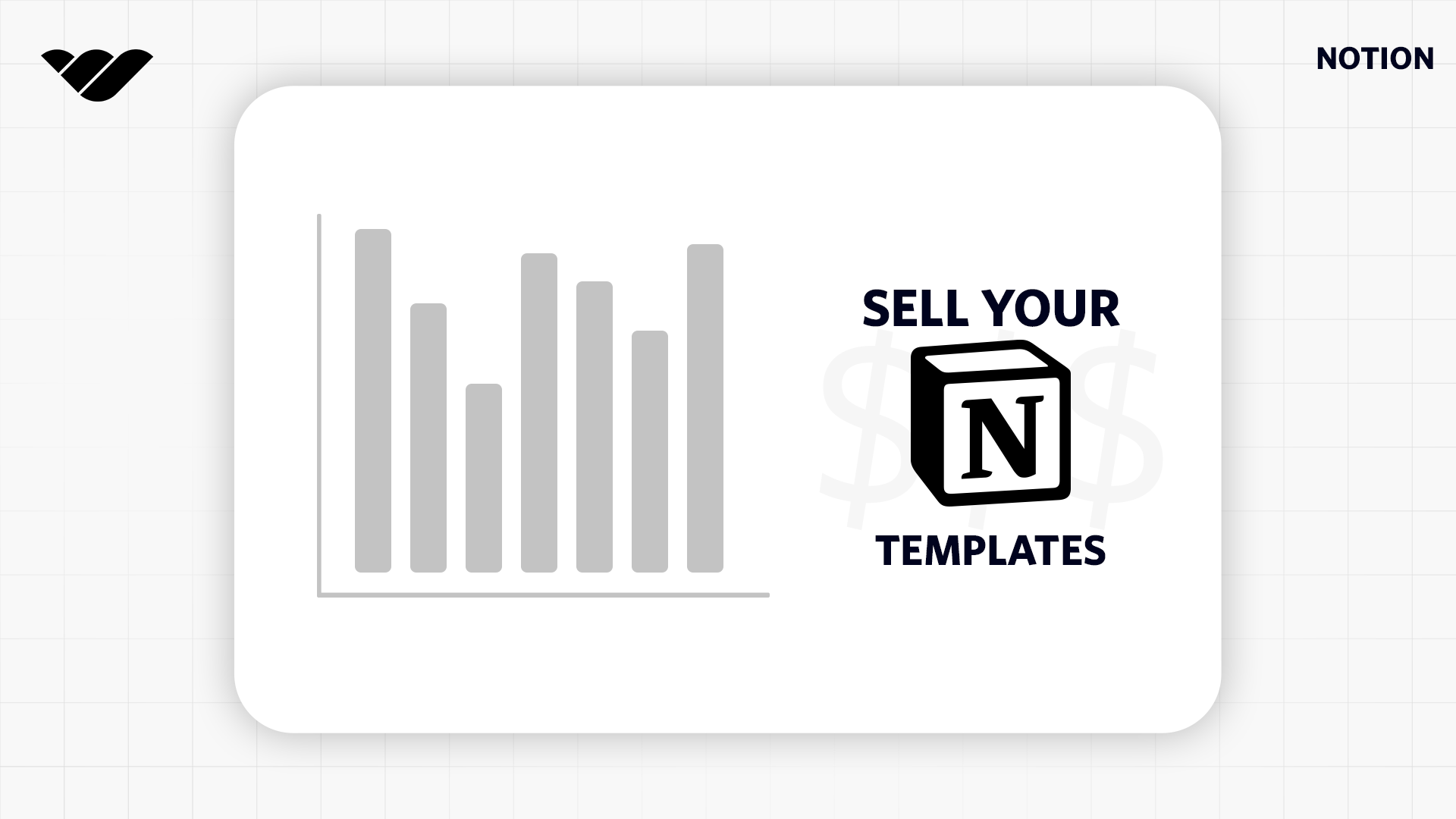
Notion templates are some of the easiest digital products to sell without a website, so if you're good at it, you can build yourself a nice side hustle with a lot of potential. These templates range from simple to-do lists to complex project management systems, acting as a customizable framework that saves people time.
The demand for Notion templates is trending upwards, as it's one of the tools that are a useful alternative to well-known solutions like MS Excel and Google Sheets. This growth shows through the company's valuation, which has hit $10B, making these templates a safe bet to sink some time into.
9. Offer remote tech support
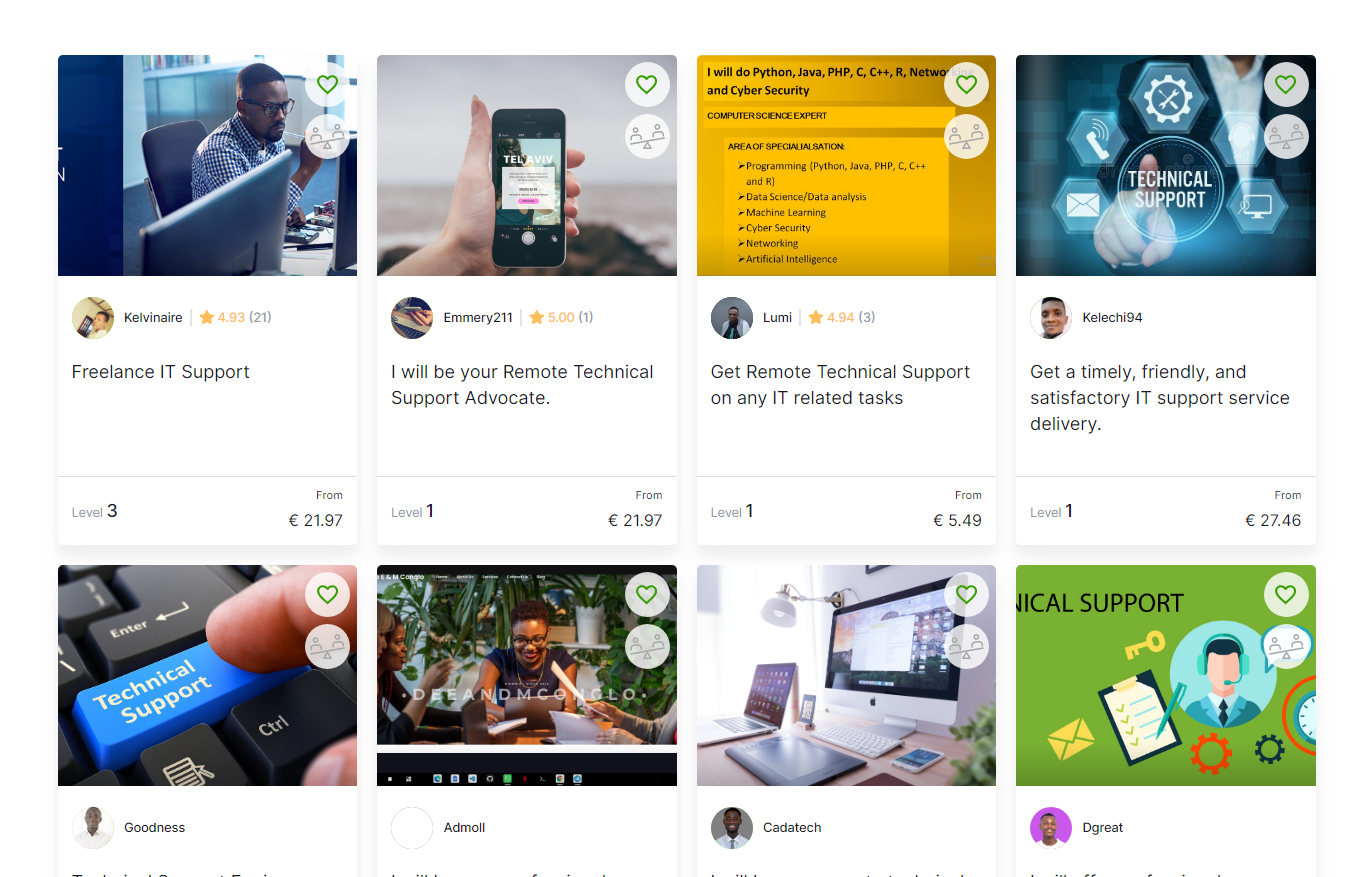
If you're tech-savvy, there are people out there who will be knocking on your door (or your email) to get some help with their computers, mobile devices, and the like. This is a viable career for a WFH job, but you can also start your own business and advertise your IT support services on websites like Facebook, Craigslist, and more.
You don't only have to work with individuals. You can offer your services to companies as a remote IT consultant, potentially earning a lot more per hour.
10. Start a dropshipping business

What if you could sell physical products without ever laying eyes on them in person? It's possible through the dropshipping business model. Working in dropshipping means you serve as the connection between the supplier and the customer, so you don't have to carry any of the inventory—that falls on the third party, as does the shipping.
The global dropshipping industry is still growing rapidly, projected to rise from $287 billion in 2023 to $1.5 trillion by 2030. However, the market is also pretty saturated, so pick your products carefully and keep an eye on the latest trends.
11. Teach people how to make money on crypto

If the violent ebb and flow of cryptocurrencies doesn't scare you and you're an experience trader, you could make a lot of money teaching others how to successfully trade crypto. This includes giving advice on how to select the best altcoins and NFTs to invest in, or how to use margin to take leveraged long and short positions on the market.
Despite a rough bear market, now is actually the best time to start selling crypto advice, with the bull market on the horizon and the interest in crypto on the rise once again. You can do this by offering one-on-one coaching sessions, running dedicated Discord or Telegram communities, or making your own courses on crypto—and all of that can be easily and securely sold on Whop.
12. Write resumes and cover letters
Few things are as annoying as having to write tailored resumes and cover letters for every job. On the upside, doing this is an easy skill to pick up, which means that you could be selling these for a living with a bit of marketing.
This is a pretty saturated market, especially with AI also knowing how to do it, so you could bundle these services with career coaching or prompt engineering—and get on LinkedIn right away to offer free advice to potential customers.
13. Sell productivity worksheets
Selling useful templates of any kind can get you a lot of traction, and they will continue generating passive income once you list them online on marketplaces such as Whop.
This includes complex Excel spreadsheets with useful macros and formulas, Notion templates, Google Sheet project management dashboards, PowerPoint presentation templates, or even Adobe Photoshop templates.
14. Become a virtual assistant
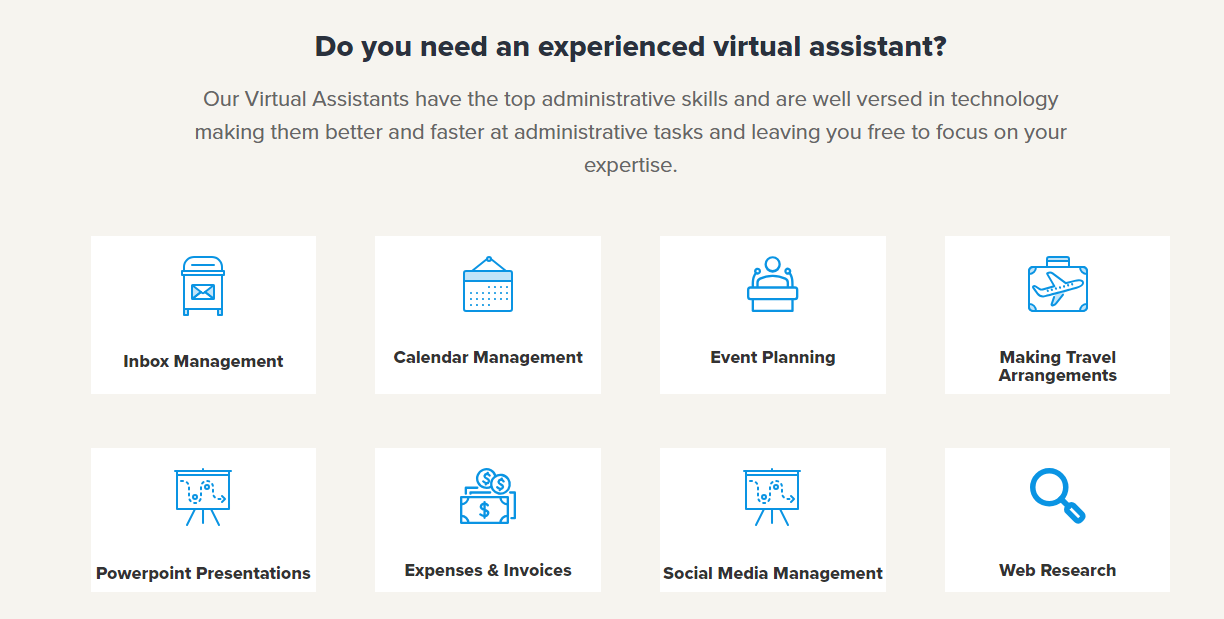
Being a virtual assistant and simultaneously being your own boss can be pretty great. The demand for such services is still high, especially for tasks such as scheduling meetings, customer service, email management, bookkeeping, data entry, and social media management.
Despite the era of automation, the VA market is on the rise and is expected to reach up to $25 billion by 2025. It's cheap to start—all you need is a computer.
15. Work as a consultant
Once you're good at something, you no longer need to leave yourself at the mercy of the upper management—just sell your skills and expertise as part of your work-at-home business. Some of the most popular consulting fields include management, IT, HR, finance, and marketing, but you can become a consultant in just about any industry.
A good way to succeed in this field is to really crack down on your LinkedIn presence and market yourself as the expert that you are. When the time comes to get paid, you can send your customers handy Whop Checkout Links.
16. Offer trading advice

Equities, stocks, forex, commodities, prop trading—if you know your stuff, there are lots of people out there who want to learn from you. There are many ways to pass on your knowledge and get paid for it.
Successful traders run massive private communities, write ebooks, and publish their predictions in regular newsletters. Be prepared to showcase your own success—the more specific you can be, the more likely it is that customers will want your advice.
17. Work as a personal trainer

Working as a personal trainer, you can transform your love for staying fit into a lucrative source of income, and this can be done at home with little to no startup cost. Personal trainers teach online classes, one-on-one coaching, and accountability check-ins. You can also set up a small gym at home and train people in person.
The latest trends in personal training include HIIT, active aging, and yoga, but as long as you're enthusiastic, you can ride the wave of virtual fitness training and start a successful business. Using Whop you can start your own fitness community to generate a recurring income.
Online Work at Home Business Ideas
Working at home can sometimes involve a fair bit of going out or in-person work, but what are some jobs that can be done entirely online? We'll cover some of the best options below.
18. Offer business coaching

Career and business coaching is a booming market right now, expected to reach $11.7 billion by 2032. There's a strong demand among young adults for some useful guidance as they navigate their careers, be it starting their own businesses, climbing the corporate ladder, or switching to a different career path.
One-on-one consultations are the most common form of communicating with clients in this field, and you can do that entirely online. When you want to scale up, you could switch to executive coaching for leadership development, or niche down to in-demand industries like sales coaching.
19. Work as a programmer
Programmers often work from home, but running your own coding business opens a lot of doors and gives you much more freedom. As a B2B programmer, you can offer your services to other companies, such as SaaS, or work in a B2C manner by building websites or apps.
Despite various outcries that the software engineering market is becoming saturated, companies are always on the lookout for creative devs, and as a business owner, you're often a better solution than a full-time employee.
20. Run paid communities
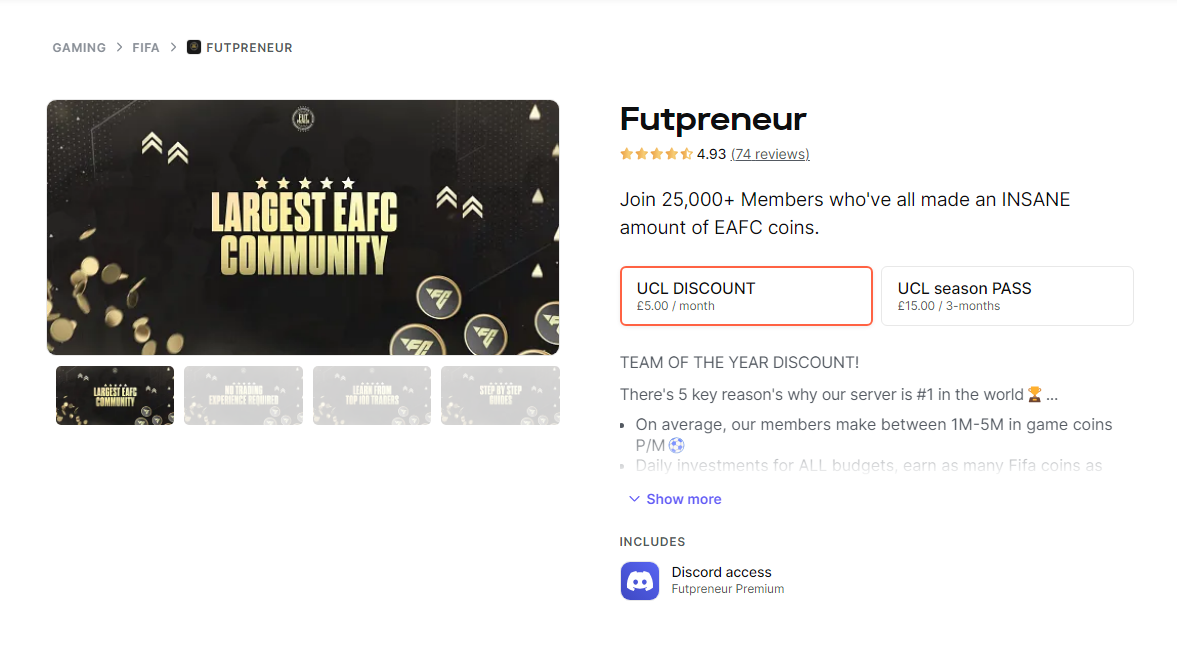
Discord and Telegram are more than just groups of people with similar interests. Paid communities connect experts in many fields, including sports betting, stocks, finance, and crypto. Shared knowledge helps both seasoned pros and newbies looking to break into the field. You, as the owner of such a server, can take your business to the next level by selling courses and offering coaching.
Running a paid community is super easy with Whop. Not only will your community be listed and available to thousands of potential clients, but also the whole process of sending out invites will be entirely automated.
21. Plan events
As a remote event planner, you'll be dealing with anything from small meetings to large-scale conferences and weddings, starting with conceptualizing the event and planning the budget to booking venues and coordinating with clients.
The rapid improvement in digital infrastructure also means that there's a growing market for virtual event planners. For instance, in academia, planning virtual events is often easier when SMEs are scattered all around the globe.
22. Sell SaaS

The Software-as-a-Service market has been doing well almost since its inception, and it only gets better each year. Selling SaaS most commonly means following a subscription-based revenue model. Oftentimes, this is supplemented by tiered pricing, where you'll offer different subscription tiers based on the features of your SaaS.
Whop's SaaS marketplace is booming, and some of the most popular picks include bots, automation tools, design tools, page builders, and analytics tools—but the sky is the limit when you have a unique idea.
23. Buy and re-sell

Buying and reselling products online is often referred to as e-flipping, and it's a pretty great business to run from home provided you're prepared to invest some initial capital into it.
In recent years, the apparel market has been one of the biggest hits when it comes to buying and reselling. This is driven by the fact that the general public has developed a bigger focus on sustainability, but also by big brands releasing limited edition items that are difficult to snag before they sell out.
24. Become a tutor

Languages, maths, history, programming, music, art—everything is easier to learn when you have a good tutor. Tutoring online can be a sustainable way to reach more clients, as this means you can search outside of your local area and also offer competitive pricing.
The online tutoring market is expected to keep expanding, and that includes both structured learning with a curriculum where you work with students for a longer time, and on-demand tutoring that's used as a response to seasonal needs, such as the exam season. Be mindful that this job tends to dry up during the summer, though, which is why selling online courses is a good way to supplement it.
25. Work as a social media manager
Social media managers find plenty of work all year round, so opening up your own online business can be a great idea if you're a tech-savvy multitasker. You'll be expected to run multiple social media platforms for multiple clients, including posting on LinkedIn, TikTok, Facebook, Instagram, and more.
These days, having some knowledge of copywriting, creating ad copy, SEO principles, and digital marketing is often necessary to succeed in this field. Social commerce is another part of this industry that's especially worth exploring, as it's projected to surpass $1 trillion globally.
26. Open up an ecommerce store

Running your own ecommerce store (or a few) can be one of the best ways to make money online. It comes with its fair set of challenges, though. The market has seen exaggerated growth during the pandemic and is now finally stabilizing in many niches, but if you're able to identify the latest trends, you'll fare a lot better.
This means that it's especially important to identify the best products to sell before you get started. Try to avoid highly saturated markets, such as grocery stores.
27. Offer therapy or nutrition advice

If you're a certified therapist or nutritionist, you don't need to see clients at an office—just set up a webcam and you're good to go for video calls. The personal wellness market is not limited to those two specializations, though, and "personal wellness" is not limited to those "everything showers" or skincare routines on TikTok. Mental and physical health are both topics that are now frequently covered in the media, and both are accessible through digital channels.
Before you start this business, make sure to check your local laws about the extent of advice and therapy you can provide online, as well as the required certifications.
28. Become an affiliate marketer

Affiliate marketers promote other companies' products or services and earn a commission on each sale; such as adding Amazon affiliate links to blog posts. More often than not, you'll be using this to supplement your other ventures—or perhaps run several such businesses at once.
Affiliate marketing has now been around long enough that many of us have learned to distrust it, but this is actually good news for smaller businesses. So-called nano- and micro-influencers can thrive with a more personal approach and personalized recommendations.
29. Sell subscriptions
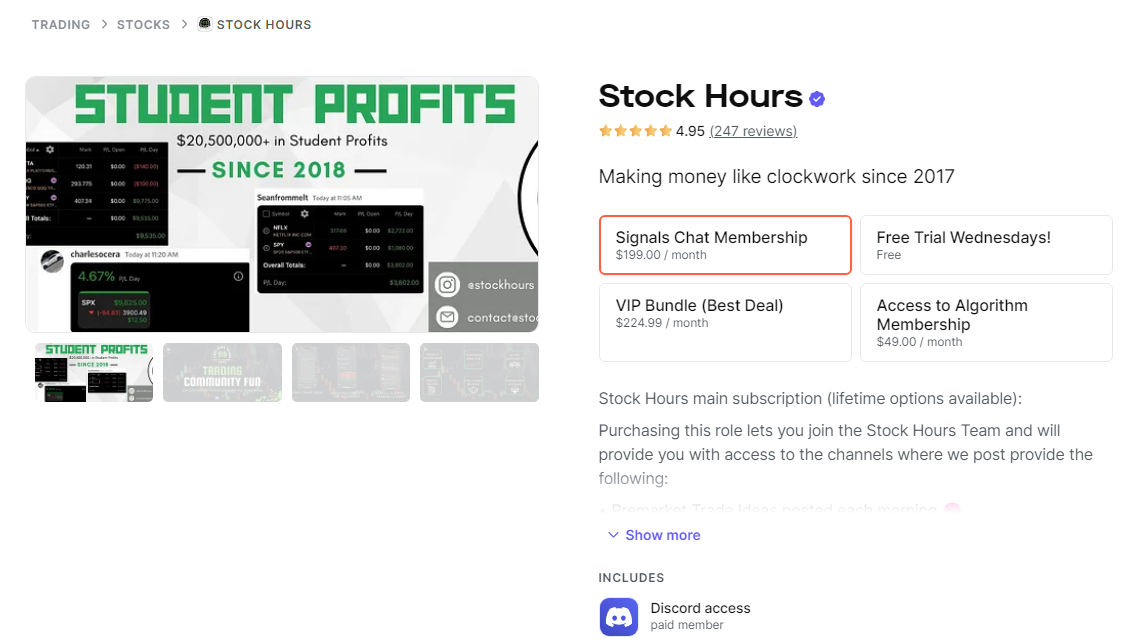
Subscription services are among the best digital products to sell, so the sooner you jump on this trend, the better. You can sell SaaS, access to private communities, online courses, or even physical products, such as subscription boxes. Cross-channel engagement is great for driving sales, so it's a good idea to market your subscriptions through multiple platforms and build a steady following over time.
Once you know what you want to sell, subscriptions are super easy to get paid for through Whop. You can integrate Whop with a third-party platform if you have your own website, or simply list your subscriptions on the Whop marketplace and benefit from the established audience.
30. Run an online clothing store
Running your own store means having to deal with inventory, sales, and shipping, but it can be both rewarding and a good source of revenue. These days, you don't even need a website—many clothing sales take place through channels like Instagram or Facebook, although those can be risky due to scammers running rampant.
As a new business owner, you may struggle to compete against big brands that can undercut your wares with ease. Avoid that issue by opening up a specialty boutique, such as vintage clothing or eco-friendly sustainable wear.
31. Become an influencer

We know, we know—this is easier said than done. The internet is full of influencers, ranging from nano-influencers with less than 500 followers to those who are recognized worldwide. However, if you can carve out your own path in this oversaturated market, you could achieve a more understated form of financial success.
Nano- and micro-influencers may not have anywhere as many followers, but gain high engagement rates, which, depending on the platform, can be a great way to propel your career. This is the kind of job where you'll do several things at once and make money online from channels like affiliate marketing and social media.
32. Import overseas products

If you keep your finger on the pulse, importing and selling local products from overseas might be the right business idea for you. Whether it's Pokemon merch straight from Japan or rare delicacies, you can import them in bulk from wholesale platforms and resell them at a profit.
There are a few things to be mindful of before starting, such as whether you'll be following a dropshipping business model or holding your own inventory, whether there are any tariffs and regulations when it comes to importing, and whether the market isn't already oversaturated in your area.
33. Open a specialty store

Running a specialty store means turning something you're already an expert in into a source of income. This is a project that you should approach with a good amount of knowledge because you'll be selling to people with the same, often narrow, interests. You should be able to curate your wares and offer expert advice on any given product.
Market dynamics are influenced by factors such as the state of the supply chain and consumer trends. You might have to jump on trends as they appear, but also be prepared to rebrand if the tides change.
Best Creative Work at Home Business Ideas
Using your natural creative streak to start a business and turn a profit is one way to get a job that you'll love.
34. Sell online courses
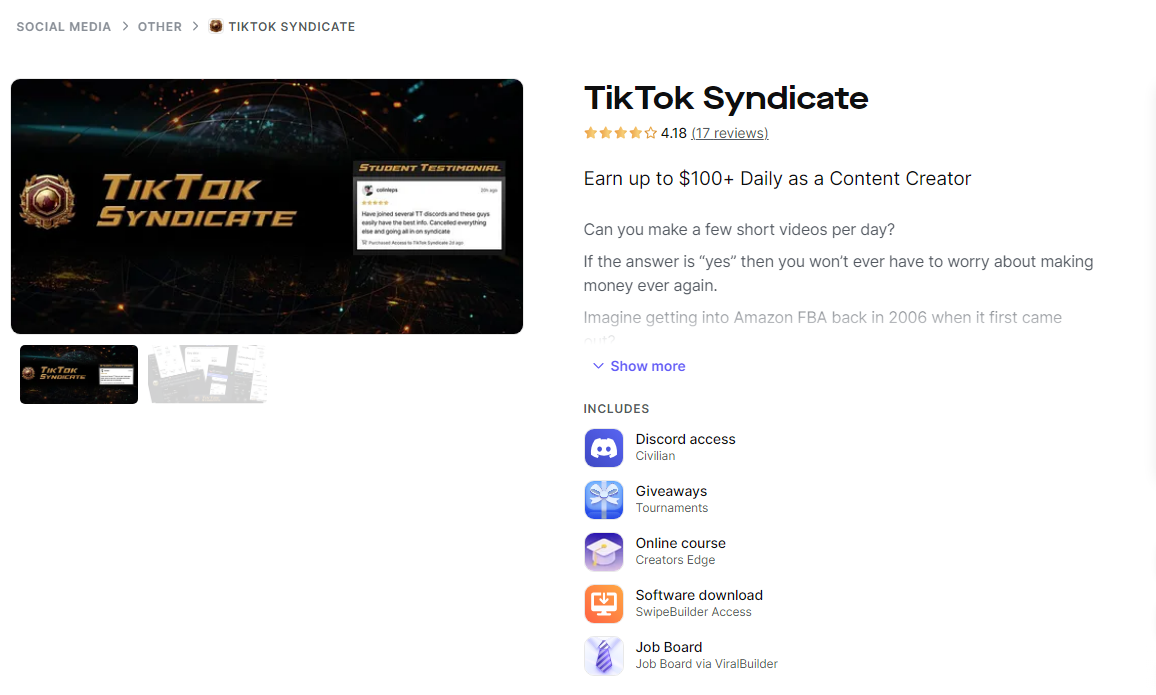
The e-learning market is on a rapid upward trajectory, propelled both by consumer demand and the emergence of platforms that support selling courses. Learning from courses has never been easier, with mobile learning being a popular new option.
Courses can cover anything from programming to cybersecurity to stock trading tips, and successful course creators diversify by selling bundles, offering free access for a limited time, and building up their platforms. The good thing about selling online courses is that once it's out there, it'll generate passive income for as long as you want, although it's best if you update it.
35. Start an interior design business
Interior design is something you can do well with in person, but this business can also be run entirely online—that branch is often referred to as "e-design." With virtual staging services, you can stand out in the market and reach a wider clientele; meanwhile, platforms like Instagram and Pinterest make it easier than ever to promote your skills and knack for design.
No matter the channel, be prepared to deal with a highly competitive market, which is why leaning into social media and preparing some virtual room renderings to show to potential clients are key to success.
36. Make your pet an influencer

All those cute cats and dogs on YouTube and TikTok? A lot of them are influencers and they don't even know it. The internet loves all manner of pets, and if you and your pet can team up to create interesting, authentic content, you may earn more than you'd think.
This is a branch of influencer work where it pays to be consistent, so be prepared to upload something on most days of the week and spend time interacting with your followers. Top pet influencers (or rather their owners) diversify their income through multiple channels, including branded merchandise, paid community access, and licensing content rights.
37. Become a life coach
As the focus on wellness grows, so does the demand for life coaches, making it one of the fastest-growing industries in the United States. Plugging the gap between therapy and business coaching, a life coach focuses on helping clients clarify their goals, overcome obstacles, and improve their lives.
If this is the path you want to take with your business, be prepared to identify a successful niche, such as wellness coaching, and diversify your services. For instance, online coaching is cost-effective for both you and the client, and getting paid is easy—just send them a quick Whop Checkout Link.
38. Create ebooks

Needing a publisher to write a book is so 2002. These days, ebooks are all the rage, and they're some of the best digital products that you can sell. Once your ebook is written and online, it'll generate passive income, meaning that the bigger your catalog, the more you'll earn—especially with some clever marketing strategies.
You can write an ebook on anything you want to talk about, but some of the most popular topics include trading advice, business guides, cookbooks, and crafts and hobbies. Publishing your ebooks with Whop is as easy as pie—all you need to do is sign up, write a catchy blurb, and hit the ground running.
39. Open up a beauty salon
You can run a quaint, personal beauty salon out of the comfort of your own home. Some of the most popular options for at-home beauty services include manicures and pedicures, but also things like applying eyelash extensions.
Remember that even if your business is on the small, cozy side, you'll still need to meet a number of health and safety regulations for your clients and may have an upfront investment as you convert a portion of your home into your beauty salon.
40. Sell your crafts

What's more creative than selling your own crafts? This is a business that you can run entirely online or take it out for a spin in person, selling your handmade goods at local fairs or online with pickup from your home.
There's a market for many crafts, including crochet and knit creations, candles, soaps, clothes, woodworking, 3D printed items, bath bombs, lip balms, novelty cosmetics, jewelry, arts and prints, pet toys (such as dog snuffle mats), and consumable goods.
41. Make subscription boxes
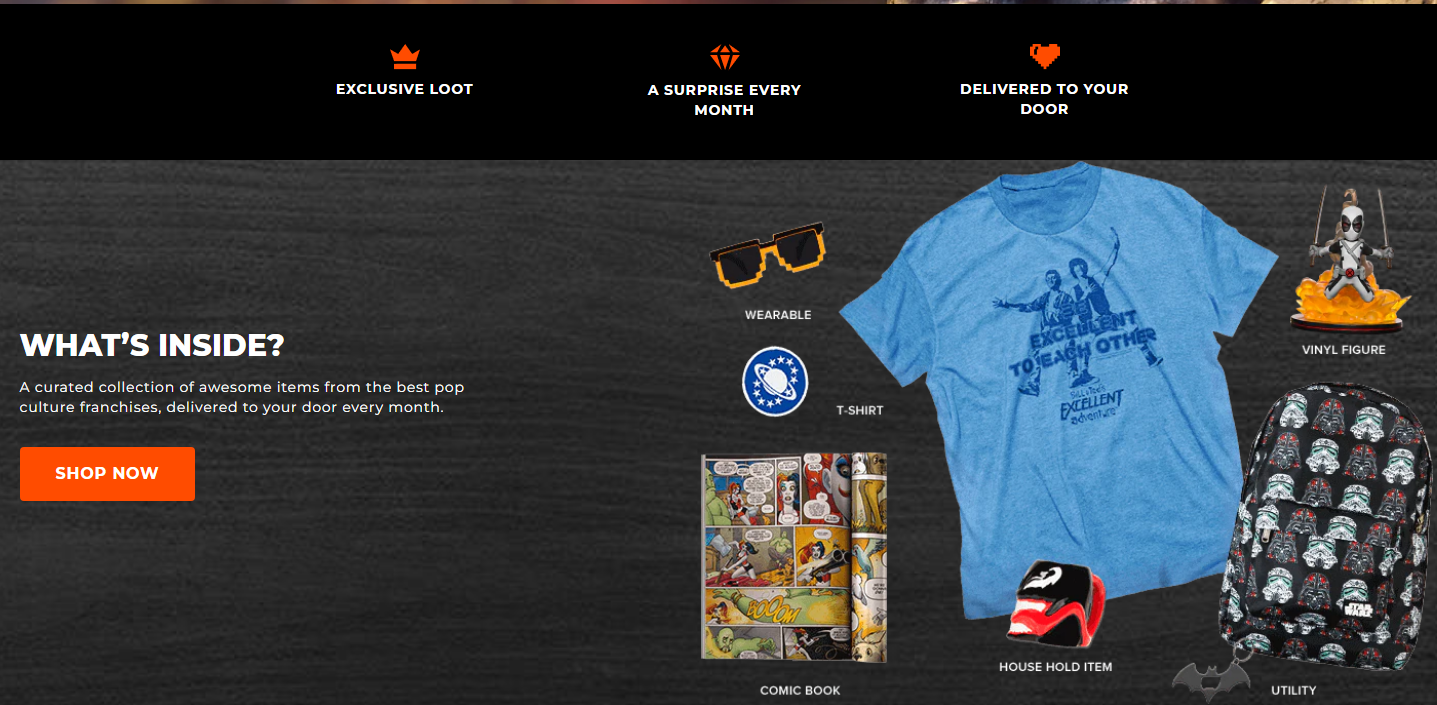
Making and selling subscription boxes is a fun business idea that doesn't just let you hit a very particular (but popular) niche—it also gets you income every month. This market is led by apparel, merchandise, health and fitness, and food and beverages subscription boxes, but you can really assemble anything, from geeky gadgets to pet supplies.
Although some subscribers stay loyal throughout the year, this business definitely has an ebb and flow around the holidays when themed boxes become popular.
42. Become a graphic designer
The rise of tools such as Canva made graphic design a lot more approachable as a business for creatives. As a result, you'll be dealing with a very saturated market, but also the barrier to entry is significantly lower than before.
Aside from creating designs for t-shirts or websites, a good way for a graphic designer to make a consistent income is to work with businesses. Design plays a critical role in consumer decision-making, so if you niche down into B2B and know your stuff, you'll do great!
43. Create print-on-demand merchandise

Best combined with that graphic design business we mentioned above, creating and selling print-on-demand merchandise is increasingly popular. In fact, while the market was valued at 6.18 billion in 2022, it's expected to grow at a compound growth rate (CAGR) of 25.8% by 2030—so now is a good time to get in on it.
You can make your own designs, and some of them can be really simple, or create your own elaborate art and allow your customers to order it on merchandise of their choice, from t-shirts to thermal cups. Most entrepreneurs do this through a third party, such as Redbubble, but it's not impossible to run this from home on your own—it's just pricier.
44. Offer styling advice
Whether you want to become a virtual stylist or meet your clients at your home, if you have a good eye for trends, there's bound to be a market for your skills. Stylists deal with grooming advice, help in choosing the right clothes, or even assist their clients in preparing for big nights out.
Like many other jobs in the beauty industry, this is one gig where the use of social media is almost unavoidable. The more people lay eyes on your work through Instagram, Pinterest, and Facebook, the better.
45. Create stock photos

Stock photos are a solid way for your creations to generate passive income. You'll be selling your photographs to websites such as Shutterstock, and when someone buys the photo, you'll get paid—although platforms tend to take a big cut out of each sale.
There's a consistent demand for authentic, relatable images, especially those featuring people in everyday situations. The surge of ecommerce carried the stock photo market right along, so it can be a good way to make some money on the side.
46. Start a sewing business
From making clothes to working as a seamstress, anything to do with sewing continues to be a surprisingly good business to run from home. You can offer services such as custom embroidery, stuffed animals, or making tailored clothes, including wedding dresses.
Boutique and handmade apparel are popular right now. Although fast fashion prevails, the increased focus on sustainability makes many of us more willing to salvage old clothes instead of throwing them away, and this is where a home sewing business can come in handy.
Offline Work at Home Business Ideas
If you're not opposed to running your business in person (with some help in the form of social media and marketing), there are some great options out there to consider.
47. Cook and/or bake

Selling your delicious baked goods or dishes is something that's almost always in demand—provided you market yourself well enough, largely through social media. You can start out small with the occasional birthday cake or home-cooked meals, then scale up to a full-on catering business out of your own kitchen.
The latest trends include "free-from" food products, such as gluten-free, lactose-free, or vegan variations of meals and cakes. In addition, if you specialize in cake decorating, that opens the door to a whole new clientele.
48. Offer pet boarding
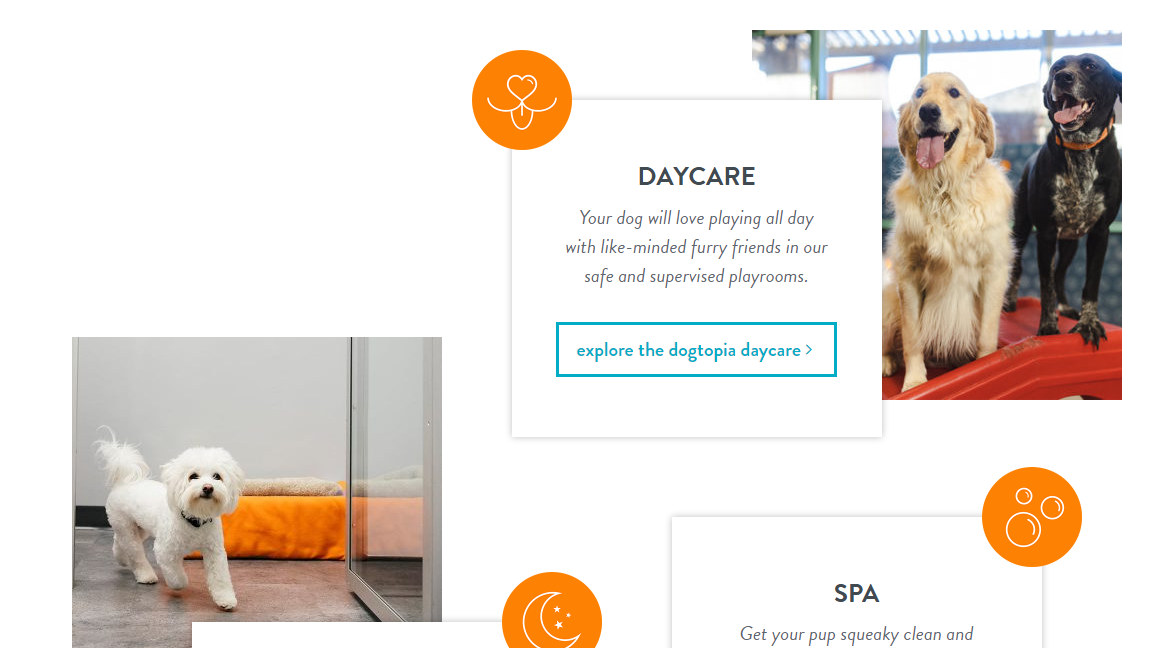
If you love pets and can offer them some great care and enrichment, you'll soon have pet owners flocking to leave their pups and kitties in your custody. While this is only a business you can run in your local area, delivering a great service can result in repeat clients, making it a consistent income. Moreover, since you're sitting at home with a pet anyway, you can run a second business on the side.
Most common services include dog boarding, grooming, and walking, visiting or boarding cats, and occasionally taking care of smaller animals. However, there's a growing market for doggy daycares, in which the dogs get dropped off in the morning and picked up after work.
49. Open a yoga studio
Assuming you're open to turning a portion of your home into a quaint yoga studio, this can be a great local business to run without leaving your home. The rise of lifestyle diseases, such as diabetes, back pain, or high blood pressure, popularized yoga and pilates. Due to the nature of yoga, running it at home is often more beneficial than running a massive gym.
Seeing as yoga is popular right now, it's a good idea to run classes dedicated to specific parts of the population. Trends such as kids yoga, hot yoga, restorative yoga, pregnancy yoga, or healthy spine yoga classes.
50. Open a ghost kitchen
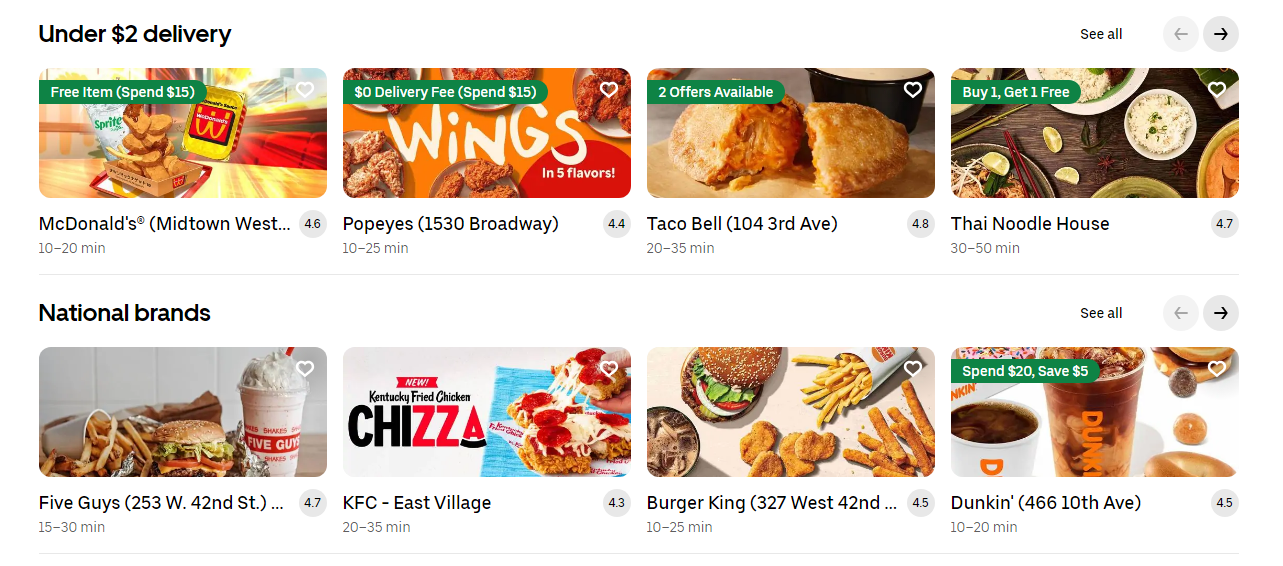
Food delivery services, like DoorDash and UberEats, led to the creation of something called "ghost kitchens." Don't worry—they're a lot less spooky than they sound. A ghost kitchen is essentially a business that prepares and sells food to be delivered directly to customers; it's like a restaurant with no physical location.
While you will still need to meet all the legal requirements for food preparation, running a ghost kitchen tends to be much cheaper than running a full-on restaurant, especially if you can negotiate some good deals on produce with wholesalers.
51. Start a massage therapy business
As long as you're licensed and have some basic equipment at home, you can run a successful massage therapy business. It gets even better if you're willing to go mobile and visit the clients at their homes.
The massage therapy market is currently experiencing growth at a steady and promising pace and is expected to continue for the years to come. Although clients often gravitate toward massages that address chronic muscle tension and pain, such as deep tissue massage, offering a relaxing spa-like experience can also be a successful approach.
52. Babysit
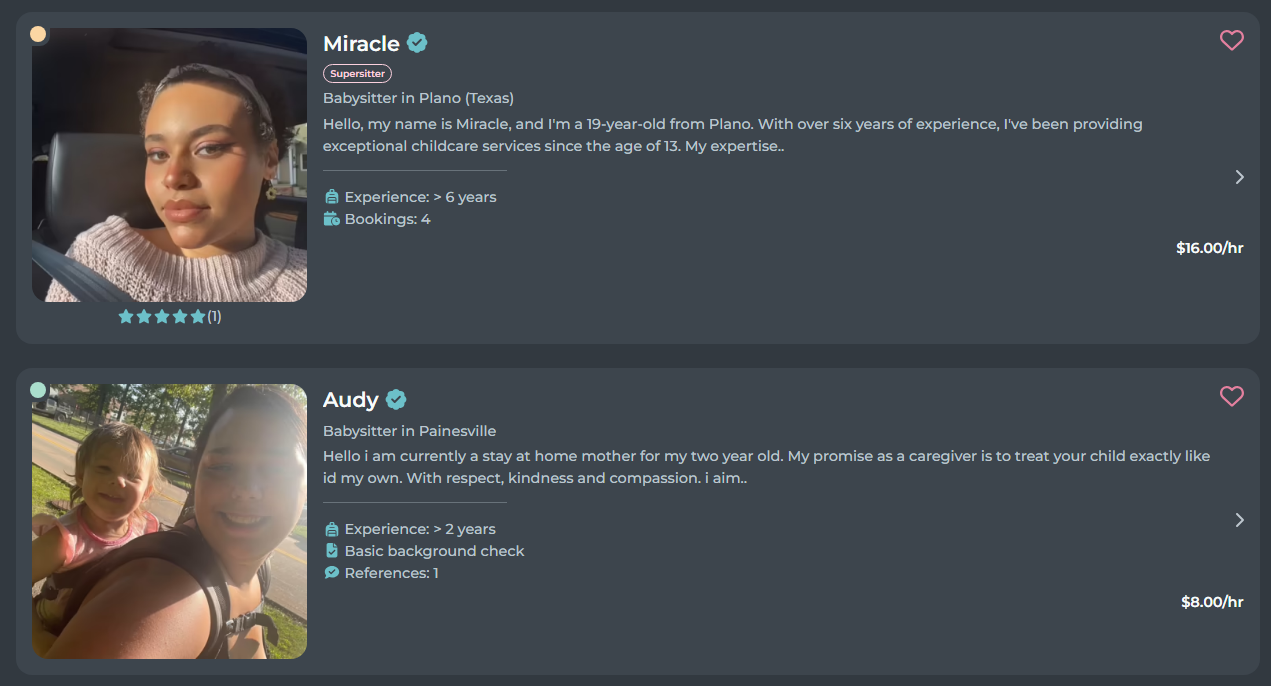
Although working from home is still very much prevalent, many parents turn to babysitting services as they're forced to go back to the office, or even when they just want a night out. The demand is consistently high, and unless you live in a remote area, you should be able to build up a solid client base with enough marketing.
Babysitting, like any job that revolves around working with people, requires excellent customer service skills. Be ready to be available on various messenger apps, provide references before taking care of kids, and offer reduced rates for regular childcare.
53. Open up a laundry & ironing business
The need for a more personal and thorough service is what's popularizing at-home laundry and ironing businesses. You could offer specialized cleaning from the comfort of your own home, although that also includes costly equipment. However, many people would be happy to drop off a load of laundry and get it back fresh and ironed at lower prices than the dry cleaners'.
To take this to the next level, you could offer pick-up and delivery services or combine your business with sewing, fixing tears, and specialized stain treatment.
54. Run your own daycare
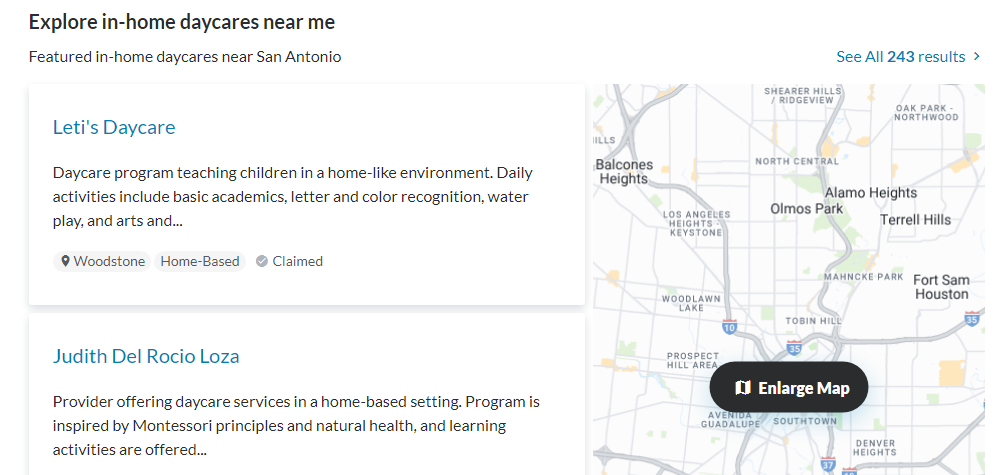
If you're great with kids and willing to spend every day caring for several small children at once, running an at-home daycare is a good solution. You'll need to take care of all the regulatory licensing first, not to mention child-proof your home, and prepare all the necessary tools and supplies.
A daycare is a more intense childcare experience than straight-up babysitting. Parents will often expect a full-blown curriculum filled to the brim with activities, perfectly aligned with the average age of the kids you'll be taking care of.
55. Run a B&B
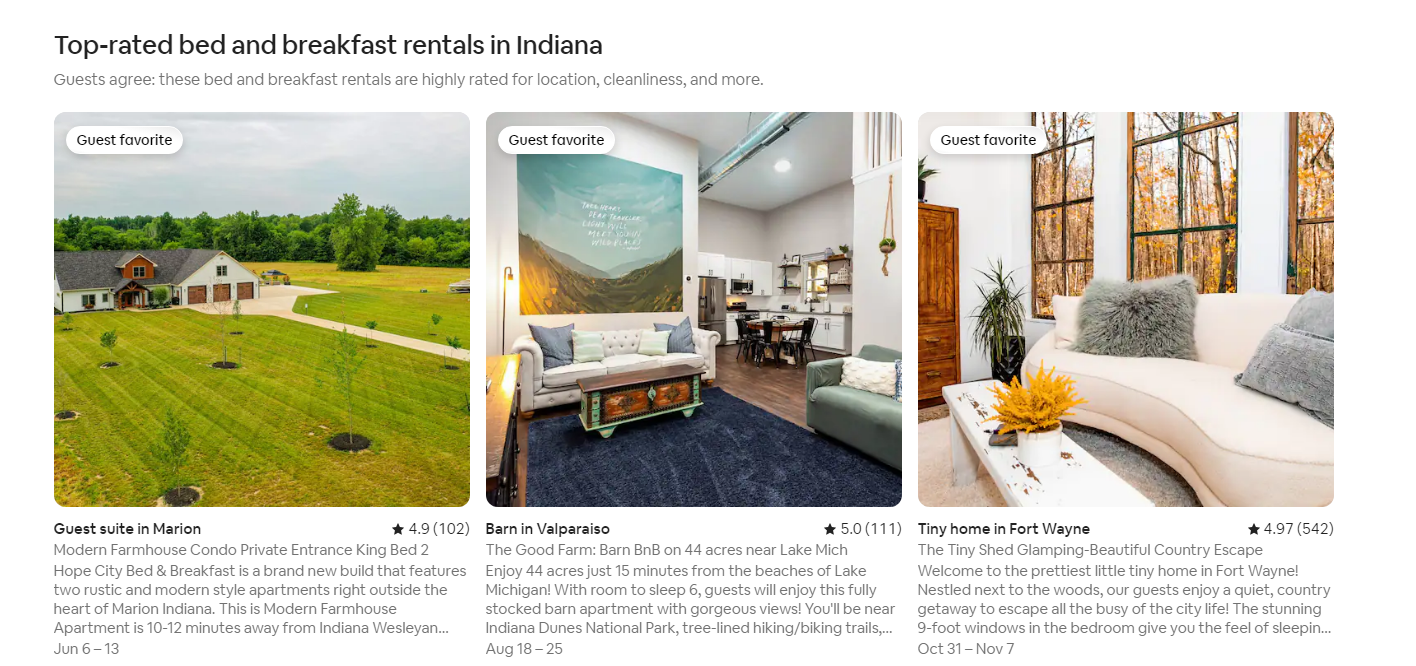
We know—not everyone can run a B&B out of their own home. In fact, this is often something to consider only if you have enough space, and even then, not every location will be fitting. But there are many ways to do this, from renting out a couple of rooms to tenants for the long term to running a proper B&B with several bedrooms and homemade breakfasts.
Services such as Airbnb made doing this a lot simpler. The downside is that this is very much a seasonal business, and depending on where you live, you may experience periods of drought.
How to Start Your Home Business
If you made it through our ultra-comprehensive list of at-home business ideas, then you're probably ready to start toying with the idea of launching your own.
But where to even begin? Don't lose momentum—follow our steps to start making money.
1. Pick an idea and find your niche
While there's never been a better time to start your own business and work from home, the harsh reality is that lots of people want this sort of lifestyle, meaning that many markets are saturated.
Fortunately, the upside is that there's a growing demand, too, so all you need is a good idea to get started.
Consider the following when picking your niche:
- How long can you wait before your business starts earning money?
- Do you have any initial capital?
- Is there a demand for this product or service?
- Are there many businesses with a similar scope to yours?
Follow up these initial findings with a business plan detailing your idea, target market, competitive analysis, marketing strategy, financial plan, and operational structure. You don't have to do this, but it helps stay on track. Plus, if you ever want to take out a business loan, the bank may want to see a business plan.
Hint: If you're looking for a low-cost, easy-to-start business idea, selling digital products with Whop only takes a few minutes to get started.
2. Choose a business structure
Depending on your local laws and the type of business you're operating, there are different formalities you may have to tend to. This is all important stuff, as neglecting to meet all the local requirements can end up in legal liability or tax issues.
The simplest and most common business structure chosen by solo business owners is a sole proprietorship. It requires less paperwork and is easier to set up. As a sole proprietor, your personal and business assets/liabilities are one and the same, so that can be a downside.
Your other option is a limited liability company (LLC). This provides you with more protection, as it separates your personal assets from your business debts and liabilities, protecting your personal belongings if your business ever ends up in debt or is sued. Setting up an LLC is a longer process than a sole proprietorship.
Before choosing one or the other, make sure to research your local laws and weigh the pros and cons of each option.
There's actually a third option—you don't have to file for a sole proprietorship or register an LLC to work as a freelancer or sell digital products, which makes the barrier to entry almost non-existent. However, make sure to do your reading and verify the options that are available to you where you live.
3. Register your business
Assuming you're a sole proprietor or an LLC, you'll need to tend to all the other legalities, such as registering your business name and structure with the appropriate state authorities. You may also need to apply for a federal Employer Identification Number (EIN) for tax purposes, although that's unlikely at this stage.
If any extra licenses or permits are needed, make sure to take care of that, too. Some businesses may need additional permits when operating from home, such as catering or childcare services.
4. Plan out your services and set your prices
Now, the fun part begins. What are you going to be doing and how much will you charge? All that market research you've done before will come in handy now, but it's better to double down on it and research some more.
For instance, if you'll be selling SaaS on Whop, make sure to go over the other listings created by your competitors. Take notes on product scope, descriptions, images, and pricing. You don't want to copy this—you just want to take note of industry-specific trends, and then do it even better!
5. Start getting paid
To get paid, you'll often have to turn to third-party services that facilitate transactions, including digital wallets and payment processors. Accepting cash payments is fine for brick-and-mortar businesses, but these days, many customers prefer to pay with their credit cards or mobile phones.
6. Figure out your marketing plan
A good marketing strategy is the key to any successful business, so be ready to launch yours as soon as your business is up and running. In this day and age, building a social media presence is crucial, so that's your first step. You don't need to hit up all the socials right away—for instance, a resume writer will find more success on LinkedIn than on Pinterest.
If your budget can stretch to it, consider running a marketing campaign, no matter how small. Things like Facebook ads can be relatively affordable and should reach customers from your target audience. Consider doing some unpaid advertising as well, such as offering users free trials or discussing your product on Reddit.
7. Finish up and get started
At this point, with all the formalities met, you're ready to launch your business. List all your products or services on relevant marketplaces; make sure that your website is optimized for SEO; open up a dedicated mailbox for your customers to reach you with questions.
In the first weeks, set your expectations low and focus on raising awareness around your business as opposed to turning a huge profit. (Of course, this depends on your business, as some turn a profit almost immediately due to low startup costs, such as writing ebooks.)
Is Starting a Home Business Right For You?
Running your own business can be incredibly empowering, and many people enjoy being able to work from home. However, nothing is perfect, so before you jump in head first, check out the pros and cons of running a home business.
Pros
- Flexibility: Few jobs are as flexible as your own business, let alone one that's run entirely from home.
- Low cost: You won't have to commute to and from work or lease an office.
- Control: You're in full control of everything that happens to your business, including what you're doing and how.
- Comfort: Working in a familiar environment on your own terms is pretty sweet.
- Fulfillment: You get to pursue something you're passionate about and set your own goals.
- Freedom: Not having a manager to answer to is freeing.
- Easy to start: Some skills are easy to pick up and turn into a profitable business.
- Scalability: You can scale up your business when you're ready, or scale back if life throws you a curveball.
Cons:
- Marketing: If you're not a fan of marketing yourself and your products, you may have a harder time.
- Customer service: You'll be handling all of your own customer service, especially at the beginning.
- Earning potential: While many at-home businesses can lead you past that mythical $100K a year mark, some are slow to start and may never reach that point.
- Work-life balance: This is something many business owners struggle with, and working from home only exacerbates this problem.
Make Money From Home With Whop Today!

Selling digital products and services is one of the most future-proof business ideas you can get into right now. The e-learning industry is expected to grow, pulling digital educational products (like online courses) along with it. Subscription models are wildly prevalent, and paid communities are on the rise. Selling templates and SaaS is a swiftly evolving market that's unlikely to slow down anytime soon.
All of the above business ideas have a few things in common: the startup costs are next to none, all of them encompass skills that you can pick up at home at no cost, and all of them have the potential to generate passive income.
Guess what else they all have in common? You can sell all of these products and services on Whop!
Whop is an online marketplace that connects creators with a wide customer base and handles the transactions. You can use Whop to sell, market, and get paid for the following—and this is a non-exhaustive list:
- SaaS
- ebooks
- access to paid communities
- Figma templates
- Notion templates
- trading advice
- sports betting tips
- crypto guidance
- reselling guides
Some online marketplaces take massive cuts out of each sale or aren't very transparent about how much you'll earn, but Whop has industry-leading fees that are easy to follow. It also provides you with a full suite of analytics tools to help you scale your business when you're ready.
More importantly, Whop is simple to get started with. Setting up certain businesses can take weeks if not months, but all you need to sell on Whop is your digital product and service, a catchy product listing, and ten minutes to begin.




